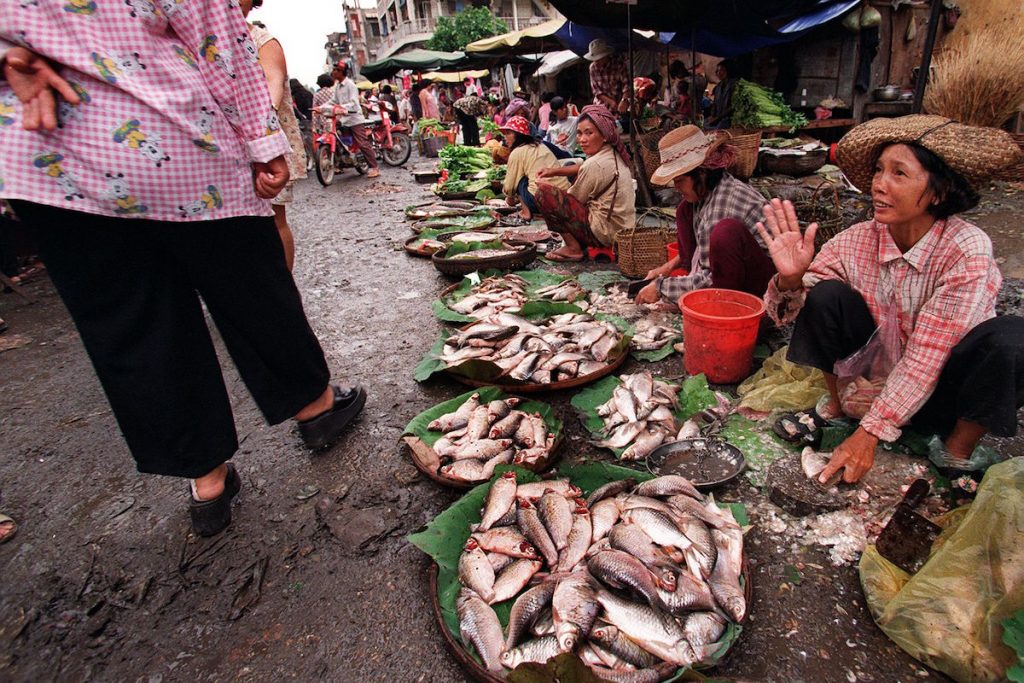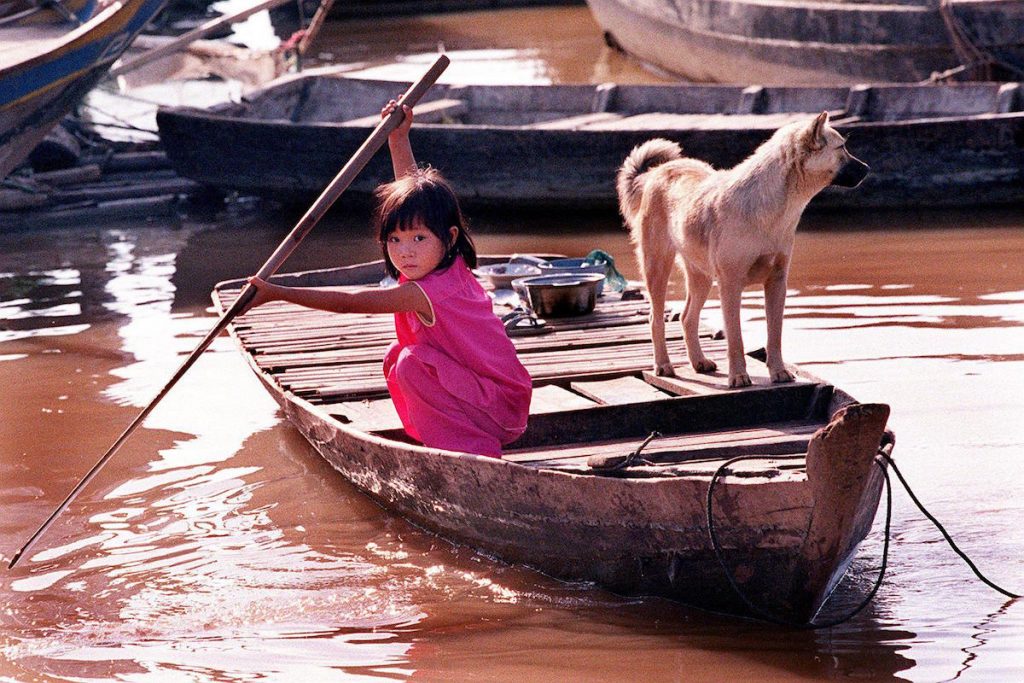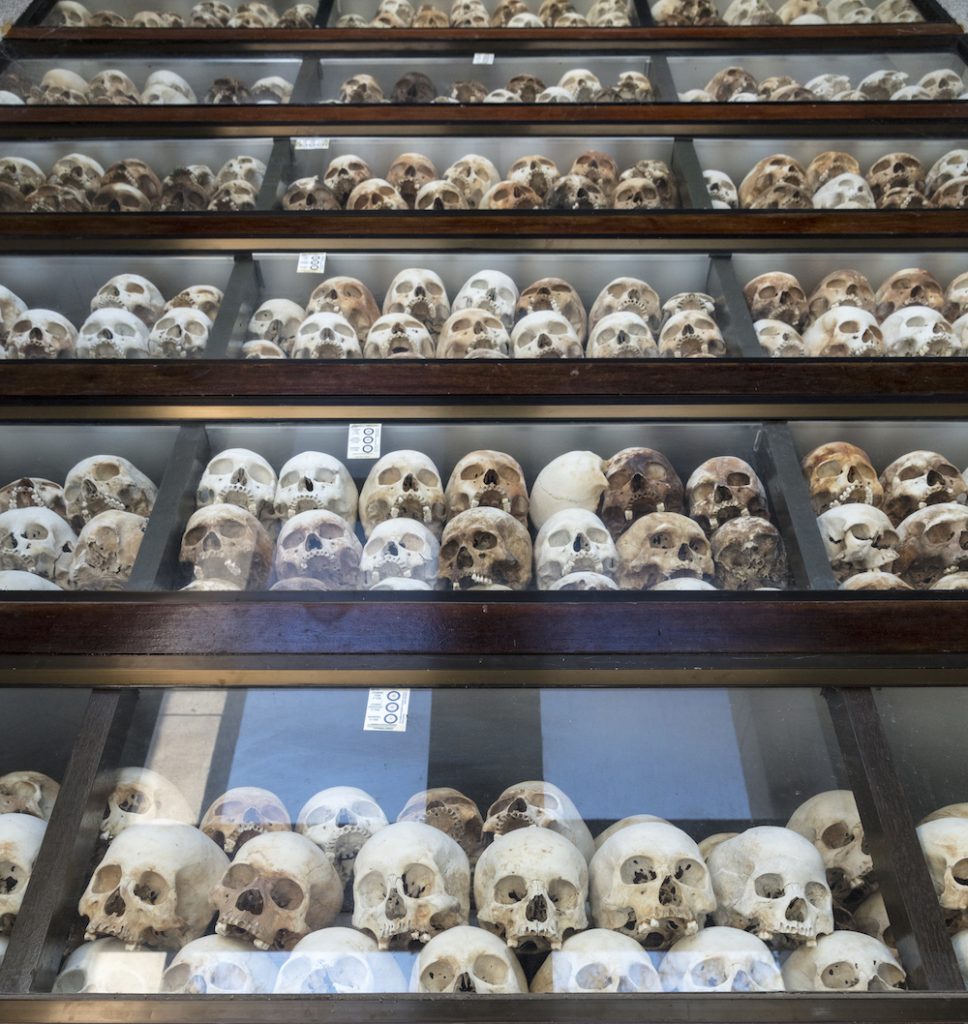
Anh Nguyen, 53, was born in Cambodia. With exception of the years that the country was ruled by the Khmer Rouge regime — April 1975 until January 1979 — he has lived in Cambodia for his entire life.
Nguyen speaks Khmer and as a construction worker he helped with the rebuilding of the country after devastating years of war and genocide. But the government doesn’t recognize him as a citizen because he has Vietnamese blood.
“I would really like to have Cambodian citizenship. It would make life easier, I could go anywhere without problems, but they won’t give it to me. Now I need to pay to make sure me and my family can stay here”, Nguyen told LiCAS.news in a small coffeeshop at the edge of Phnom Penh.
For decades Cambodia has had a difficult relationship with Vietnam and many Cambodians have hostile feelings against the neighboring country. Ethnic Vietnamese who were born and raised in Cambodia are often discriminated against and are sometimes victims of violent racist attacks. Politicians from all sides of the spectrum frequently refer to them as ‘illegal migrants’.
Nguyen and others are under pressure once again, now that Cambodia’s Ministry of Interior recently announced that ‘illegal migrants’ — an overwhelming majority of them being ethnic Vietnamese — are ‘a risk to national security’.
“The Ministry of Interior now considers that it could not leave this immigrant issue to continue to be a risk to national security, public order and social safety, as well as economic development,” the local newspaper Khmer Times reported in July.
According to the Minority Rights Organization (MIRO) Cambodia is officially home to around 180,690 people with Vietnamese origins. Some of them are from families who came to Cambodia years before the Khmer Rouge era, while others arrived in the early 1980s when Vietnam was dirt-poor, and Cambodia offered them a sense of hope for a better life.
“We believed life would be easier here. We thought that after the war people would need a house to live in, so my dad and I worked in construction”, Nguyen explained.
He and his Vietnamese wife are the parents of four children. Three of them lack any type of identification making them stateless. “They don’t even have a birth certificate as they were all born in unofficial hospitals,” Nguyen said. So far, the construction worker only managed to get a Vietnamese ID-card for his oldest daughter.

Revoking documents
Cambodia has long been criticized for its treatment of Vietnamese living on its soil. In 2017 the government started a campaign to revoke ‘irregular administrative documents’ of at least 70,000 mostly Vietnamese people. This included birth certificates, old immigration cards and in some cases Cambodian ID-cards, the MIRO said in a report from December 2018.
People were told that they can apply for new immigration documents, which need to be renewed every two years. But the govt’s campaign has made it more difficult for Vietnamese living in Cambodia to have access to basic rights, such as education and health care.
Vietnam has repeatedly asked Hun Sen’s government to guarantee the Vietnamese community in Cambodia legal rights. In January of this year the UN’s Committee on the Elimination of Racial Discrimination also raised concerns, among other things about violence and hate speeches in which the Vietnamese are targeted. The committee called on Cambodia to give the Vietnamese permanent resident cards and to protect them from discriminating attacks.
But the pressure on the Vietnamese community in the country hasn’t eased much. Anti-Vietnam sentiments are still widespread. Sometimes such sentiment can turn violent, as it did in 2014 when a Vietnamese man, who had lived in Cambodia for his entire life, was beaten to death by a group of people after crashing his motorcycle in the streets of Phnom Penh.
Giang Duong’s experience with discrimination is less vicious, but nevertheless worrying. When government officials hear her Vietnamese accent, they make it difficult for Duong to get documents she needs.
“I was born in Cambodia and I have Cambodian citizenship, but because my parents were Vietnamese it’s really difficult for me to get a Cambodian passport,” said the 48-year old in her home in the outskirts of Phnom Penh. “They tell me I should first speak proper Khmer because I have a Vietnamese accent. I’m not happy about this. I should get the passport, because I have all the required documents,” she said.
After ordering a bowl of noodle soup for her grandchild, Duong told LiCAS.news that, even though they are considered Vietnamese, her father as well as her grandparents were born in Cambodia.
“The people in this area know that I have lived here for my entire life. They don’t complain about me, but outside Phnom Penh they offend me about being Vietnamese. It makes me sad. We’re all human beings,” she said.
A long and difficult past
Part of the resentment comes from the years that Vietnam occupied Cambodia, following the defeat of the Khmer Rouge regime. There’s also a widespread belief that behind the scenes Hanoi is still pulling the political strings. It was Hanoi after all that installed Hun Sen, Cambodia’s long-ruling prime minister.
But the last Vietnamese occupiers left in the early 1990s and even before they entered the stage Cambodian politicians were already extremely paranoid about their neighbors.
During the Khmer Rouge era the xenophobic Pol Pot regime launched a violent campaign to kill ethnic Vietnamese, claiming that this was necessary because they aimed to rule over Cambodia. In 2018 the Extraordinary Chambers in the Courts of Cambodia, better known as the Khmer Rouge Tribunal, said that these attacks were so systematic that it was enough to find regime leader Nuon Chea guilty of orchestrating a genocide.

More recently popular opposition leader Sam Rainsy, at the time president of the Cambodian National Rescue Party, targeted the Vietnamese in his speeches, accusing them of illegally crossing the border and of stealing land and jobs. During the election campaign in 2013 Rainsy promised his supporters that if he comes to power he will make sure that the ‘yuon’, a term widely seen as derogatory for Vietnamese in Cambodia, will be forced to leave.
Overlooked
Tim Frewer, an independent researcher who has studied different aspects of Cambodia’s society since 2005, told LiCAS.news that by the 1990s anti-Vietnamese rhetoric was so common in Cambodia that all political parties had their grudges against their bigger neighbor.
“What united them was that idea of saving the country from the Vietnamese, even after the Vietnamese had left,” Frewer said. “The way that sunk in the minds, not just at the borders, but over the entire country, is something which has been overlooked.”
Understanding today’s anti-Vietnam sentiment is only possible when we look at what happened in the past, Frewer said.
“It’s very hard for a lot of people to consider that the Vietnamese have a stake or position in the nation. When you’re talking about citizenship it almost suggests Khmer, pure and only Khmer,” he said. “There seem to be no room for Vietnamese people, even not when they were born here.”
It’s a reality that Anh Nguyen has to live with every day. “When we speak Khmer they offend us and call us ‘yuon’. It makes me angry, but I can’t do anything about it,” he said. “And you know what? Sometimes they say that we came to take their land. But how can we do that? We don’t have anything here,” he added with a sigh.
*Some names in this article have been changed to protect identities
Source: Licas Philippines
0 Comments